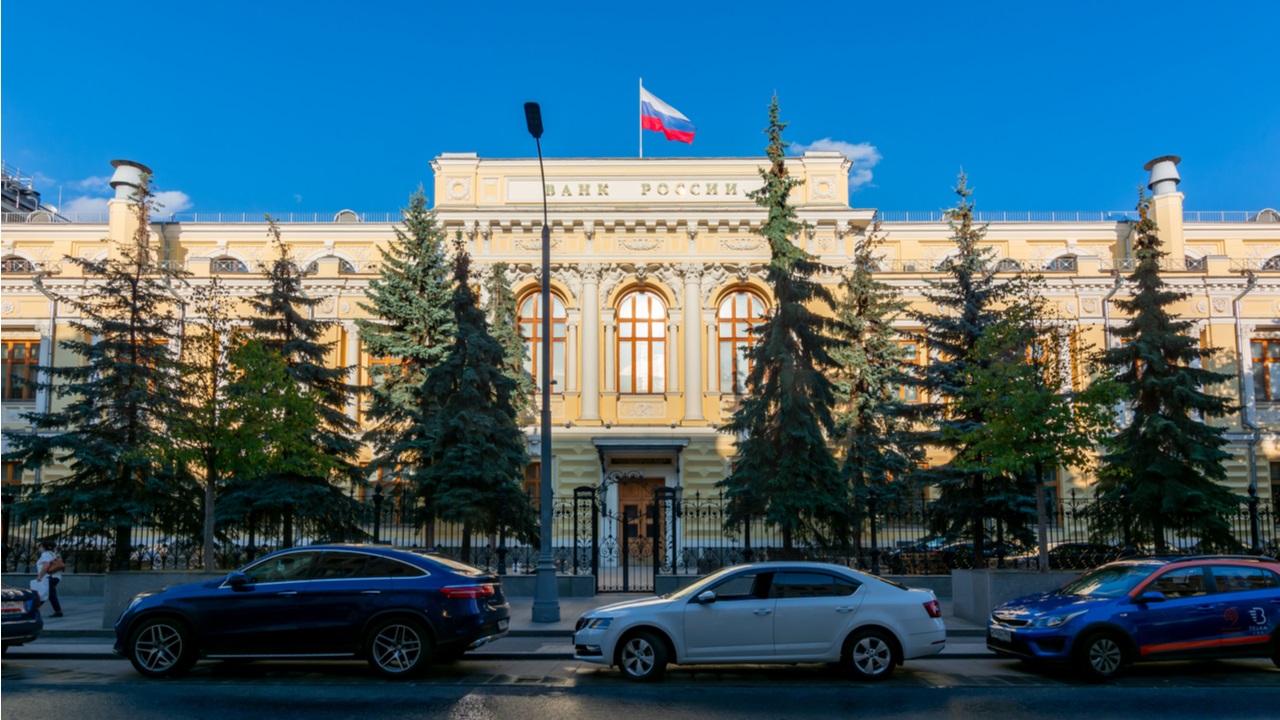 Alchemy, one of the leading infrastructure providers for blockchain and web3, has raised $250 million in its series C funding round, giving it a valuation of $3.5 billion. The round was led by a16z, which considers we are at a turning point in the web3 space. The company has multiplied its revenue by 15x in […]
Alchemy, one of the leading infrastructure providers for blockchain and web3, has raised $250 million in its series C funding round, giving it a valuation of $3.5 billion. The round was led by a16z, which considers we are at a turning point in the web3 space. The company has multiplied its revenue by 15x in […]
Ark Investment took the opportunity to buy Robinhood shares at a discount following the trading company's unsatisfactory earnings report.
ARK Invest, the investment management firm focused on innovative tech led by Cathie Wood, took advantage of a dip in the price on Wednesday to buy nearly $80 million worth of Robinhood stock.
As per daily trading data, Wood’s ARK purchased a total of 2.24 million shares of Robinhood across three of Ark’s ETF funds, with the majority of shares going to the flagship fund ARK Innovation ETF. Robinhood now accounts for 1.33% of the Innovation ETF.
On Oct. 27, the trading platform had declared a 78% decline in crypto revenue — from $233 million in Q2 to $51 million in Q3 — which drove the share price down below its July IPO price of $38.
The stock is down more than -11% since the start of the week, from $39.85 on Monday 25 Oct. to $35.47 as of market close Thursday 28 Oct.
Following the earnings report analysts at JPMorgan, Goldman Sachs, Piper Sandler, Barclays and Deutsche Bank reduced their price targets significantly.
Earlier in the week, Ark sold a total of 57,106 shares of Tesla stock, worth $59 million, when the electric carmaker crossed the $1 trillion valuation.
Ark also bought the dip with $60M in Twitter stock on Wednesday after the social media company revealed diminishing user growth in its earnings report, causing the stock price to depreciate almost 11%.
Related: Robinhood shares tank 10% after crypto revenue falls by three-quarters
Wood still has reasons to believe in Robinhood’s progress in crypto as more than 1 million people are on the waitlist for the app’s crypto wallet, albeit as that's the only way to withdraw crypto from the platform.
In early October, the trading app also introduced a 24/7 support line to improve customer service wait times and help users with crypto investments.
Although Wood passed on buying the first Bitcoin futures ETF she still remains bullish on crypto. Ark Invest partnered with 21 Shares to file for its own Bitcoin ETF in June.

Young investors assume the crypto market is regulated, new research by the Financial Conduct Authority reveals.
Most young investors in the United Kingdom are entering the crypto market thanks to the hype on social media and news, but they are not aware that the market is not regulated, a new study published by the U.K. Financial Conduct Authority (FCA) revealed.
The survey revealed that a majority (69%) of the investors under the age of 40 mistakenly believe that crypto markets are regulated. More than three-quarters (76%) of young investors who put money on risky assets like cryptocurrencies, forex or crowdfunding are driven by competition with friends and family.
The financial watchdog surveyed 1,000 British investors aged between 18 and 40 who invested in high-risk investment products in a bid to promote its five-year InvestSmart campaign, The Independent reports. Launched with a $15 million budget (£11 million), the campaign aims to raise awareness among young people about high-risk investments. The FCA estimates that more than a million investors in the U.K. have bought high-risk investments during the COVID-19 pandemic.
The research found that more than half of the participants use social media, other people, and news stories as key drivers when investing in specific products. While a majority prefera more stable returns than dramatic price movements, only 21% consider holding their most recent investment for more than a year.
Commenting on the results, FCA executive director of markets Sarah Pritchard stressed that more people are chasing high returns with higher risks. “We want to give consumers greater confidence to invest and help them to do so safely, understanding the level of risk involved,” she added.
Related: Poll shows Brits concerned over the prospect of a digital pound
The FCA survey follows Jon Cunliffe’s remarks on crypto regulations. Cunliffe, deputy governor for financial stability at the Bank of England, urged regulators to pursue crypto as a matter of urgency.
Cunliffe said that the price volatility of crypto assets “could trigger margin calls on crypto positions forcing leveraged investors to find the cash to meet them, leading to the sale of other assets and generating spillovers to other markets.”
 One of the biggest asset managers in Brazil, Kinea, disclosed it made an exploratory investment in Ethereum. The announcement was made by Marco Aurélio Freire, manager of funds for Kinea, who stated the company had invested a small amount of its holdings in ethereum starting two months ago. Kinea, the investment arm of Banco Itau, […]
One of the biggest asset managers in Brazil, Kinea, disclosed it made an exploratory investment in Ethereum. The announcement was made by Marco Aurélio Freire, manager of funds for Kinea, who stated the company had invested a small amount of its holdings in ethereum starting two months ago. Kinea, the investment arm of Banco Itau, […]
Financial charting provider TradingView secured $298 million in a new funding round led by Tiger Global.
TradingView, the price charting platform used as a reference for price movements of cryptocurrencies and other assets, has secured $298 million in a funding round to attain a $3-billion valuation.
Led by TradingView’s new investor, Tiger Global, the funding follows a strong growth of the platform’s user base, mostly retail investors, during the pandemic. According to the announcement, TradingView experienced a 400% increase in new accounts and a 237% increase in visitors in the last 18 months.
TradingView CEO and co-founder Denis Globa highlighted Tiger Global’s expertise in fintech, adding that the partnership would contribute to informed financial trading.
Established in 2011, the platform enables over 30 million monthly users in 180 countries to access price charts of assets such as cryptocurrencies, stocks and futures.
“We built this company with the belief that people everywhere want the same thing: to be in control of their own economic futures,” Globa said, adding, “We work towards this by creating an environment where all traders and investors can look first, then leap.”
Related: Elliptic raises $60M to advance crypto analytics service
The company said that TradingView aims to bolster its broker relationships with partnerships and integrations with major brokerage firms in a bid to enable visitors to trade directly from the platform.
Tiger Global’s Alex Cook said that TradingView’s global standing among retail investors positions the company “to be the default social network and financial analysis platform used by all traders and investors.”
A known investor in crypto, Tiger Global recently led another mega-funding round. Together with Coatue Management, the venture capital has invested $400 million into the crypto payments startup MoonPay.

Pension funds, the most cautious of institutional investors, are now giving the booming crypto and blockchain sector a closer look.
There are good reasons why pension funds should not invest in the crypto and blockchain space. The industry is too new, too volatile, and stultifyingly technical. Moreover, the rules and regulations to govern the sector have yet to be settled.
But the fixed-income financial instruments that pension funds typically favor — like long-term government bonds — are scarcely paying anything these days, so the traditional caretakers of employees’ retirement funds have a dilemma: Where to find investment yield in a world where inflation is looming?
It may not be entirely surprising, then, that pension funds — the most cautious of institutional investors — are now giving the booming crypto/blockchain sector a closer look.
“Family offices led the charge into crypto funds several years ago, but we’ve seen increasing interest from pensions, and there are many pensions that now have exposure to crypto,” Stephen McKeon, a finance professor at the University of Oregon and a partner at Collab+Currency, told Cointelegraph.
“We’ve seen increased interest from pensions” in the past year, added Christine Sandler, head of sales, marketing and research at Fidelity Digital Assets — part of an uptick among all institutional segments — “which we believe reflects the growing sophistication and institutionalization of the digital assets ecosystem, combined with a strong macro narrative driven by response to the pandemic.”
Pension funds tend to be “more conservative, risk-averse investors relative to other segments,” according to Sandler, and they mostly favor investments that have exhibited long-term growth and low volatility, which might arguably make them leery of the crypto/blockchain space.
One of the first United States-based pension funds to invest in blockchain firms was the Fairfax County Police Officers Retirement System, based in Fairfax, Virginia. It tested the waters back in 2018 with an 0.5% allocation in a fund that was investing in blockchain-related enterprises, Katherine Molnar, the fund’s chief investment officer, told Cointelegraph at the recent SALT conference in New York City.
The fund raised its allocation to 1% in 2019, and in spring 2021, it added two new blockchain-related investment funds. The current target allocation is 2%, but because crypto and crypto-based companies have been rising in value, 7% of overall fund assets are now crypto-related — again, mostly “pick-and-shovel” type enterprises that support the industry — like crypto exchanges and custodians.
The pension fund can’t rebalance because it is invested in venture capital funds, Molnar explained, but in mid-September, Fairfax signaled its intent to invest $50 million with Parataxis Capital, a crypto hedge fund that invests in digital tokens and cryptocurrency derivatives. “It’s not a directional bet, but it’s not totally illiquid either,” she told Cointelegraph.
The fact that the police officers’ pension fund has invested until recently in crypto-related companies as opposed to cryptocurrencies — Coinbase rather than, say, Bitcoin (BTC) — isn’t uncommon, either. U.S. institutional investors surveyed by Fidelity Digital indicated a greater propensity for digital asset investment products rather than direct ownership of cryptocurrencies, Sandler told Cointelegraph, adding:
“From our study, we also know that pension funds and defined benefit plans, like many other institutional investor segments surveyed, favor active management of an investment product containing digital assets.”
More pension funds may now travel this road. “We’ve started to see participation not just from the hedge fund segment, which we’ve long seen participation from, but now it’s recently from other institutions, pensions and endowments,” Michael Sonnenshein, CEO of Grayscale Investments — the largest manager of digital assets — told Bloomberg earlier this year, adding he anticipated that pension funds and endowments would drive much of his investment firm’s future growth.
Even pension-fund giants like the California Public Employees Retirement System (CalPERS) have dipped a toe in the crypto/blockchain sea. CalPERS invested in Bitcoin mining firm Riot Blockchain LLC some years back and has since raised the stake to about 113,000 shares — worth about $3 million in early October — though that is minuscule compared with CalPERS’ $133.3 billion in equity assets under management, as of its 13F filing in August.
What sort of crypto allocation is appropriate for a pension fund today? Jim Kyung-Soo Liew, assistant professor at Johns Hopkins University’s Carey Business School, co-authored one of the earliest academic papers on crypto and pension funds back in 2017. That paper found that a 1.3% Bitcoin allocation would be “optimal” to fully reap the cryptocurrency’s diversification benefit.
What is appropriate today? “Going forward, an institutional investor should be looking at a 10%–20% allocation,” Liew told Cointelegraph, and he expects large pension funds to be investing as much as one-fifth of their total assets in the crypto/blockchain space within the next three to five years.
98% of retirement accounts in the US can’t access #Bitcoin.
— Dan Held (@danheld) October 7, 2021
That’s $36,800,000,000,000.
What happens when they do?
“We’ll see more institutional investors,” Liew said, adding, “Their horizons are long.” Today’s $2 trillion in cryptocurrency market capitalization could swell to $20 trillion in the next three to five years, he added, assuming a favorable regulatory environment.
Asked if this doesn’t fly in the face of pension funds’ traditional conservatism, Liew answered, “Pension funds have boards; they have investment committees,” and yes, “they’re often accused of being overly conservative and wanting to understand things 100% before acting.”
From an education standpoint, it will take some time and effort to bring them along, but chief investment officers are quite intelligent as a group, and they will be able to grasp the concepts, Liew said. One problem, he allowed, “They’re not rewarded for risk-taking.”
There may be other impediments. “One challenge is that pensions tend to require large tickets,” McKeon told Cointelegraph, “so the space had to mature a bit to accept that amount of capital. As funds continue to scale up, we expect to see more participation by pensions.” Volatility remains a concern, said Sandler, pointing to data:
“‘2021 Institutional Investor Digital Assets Study’ found that 73% of U.S. pension funds, defined benefit plans, and endowments and foundations surveyed cited volatility as the top barrier to adoption.”
U.S. pension funds and defined benefit plans still hold a fairly negative view of digital assets, according to the survey, “but I think we’ll continue to see that negative perception decrease as the market continues to mature and these investors get more comfortable with the technology, infrastructure and channels for exposure and have a more fully developed investment thesis about these assets,” she added.
As such, pension funds, like other institutional investors, are striving to find investment opportunities. As The New York Times noted, “U.S. Treasuries have been the bonds of choice for safe retirement income. But they could deliver no real return for the next decade.”
Related: The long game: Institutional interest in crypto is just getting started
Meanwhile, on the positive side, pension funds have long horizons, and they can withstand short-term volatility. Another plus, “Crypto talent is spread uniformly around the world, and we can source that talent,” Liew added.
Fiduciary constraints won’t disappear, of course. Many pension funds represent municipalities, and they are holding many people’s late-life financial well-being in their hands. That’s a lot of responsibility. But you “can’t get a ton of reward if you don’t take on some risk,” Liew said.
A while back, the president of Molnar’s board said, “I understand the need to do this” — the police officers’ pension fund, like most institutional investors, was struggling to grow its money in a continuing low-interest-rate environment — but some officers “are off the reservation,” he claimed. With the fund’s recent 7.25% rate of returns on its crypto investments, it’s probably safe to assume that some of those officers are back on the reservation now.
 The Central Bank of Russia has recently expanded its database of financial market players suspected of illicit activities. Several crypto companies have been added to the list along with entities bearing signs of Ponzi schemes, as well as illegal credit organizations and forex dealers. Central Bank of Russia Blacklists Crypto Platforms As part of its […]
The Central Bank of Russia has recently expanded its database of financial market players suspected of illicit activities. Several crypto companies have been added to the list along with entities bearing signs of Ponzi schemes, as well as illegal credit organizations and forex dealers. Central Bank of Russia Blacklists Crypto Platforms As part of its […]